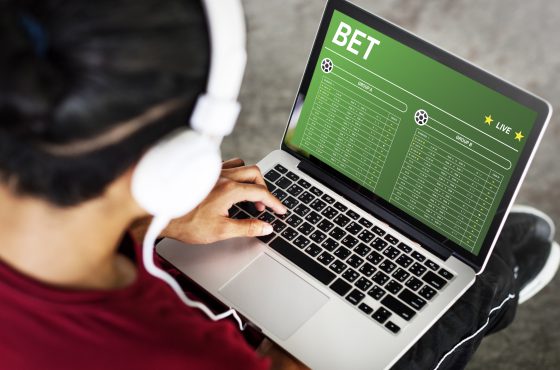How Does Person to Person Online Sports Betting Work
Exchange betting used outside the US is also called person-to-person betting or peer-to-peer exchanges. What is this betting platform and how does it work. Exchange betting is a separate sports betting market that places sports bettors against other bettors who have a different opinion on the outcome of a game. Differences of opinion exists on all sporting events as most bettors know. An exchange market matches up bettors who want to compete against other bettors with cash betting offers. The house exchange is the intermediary that charges a small commission (around 50 cents) per bet. The user friendly software works easily to credit or debit accounts after each bet. The fixed betting odds stay the same but bettors will offer reduced money odds to get your action. A minus -110 usually gets down to -103 or similar. This platform is not legal in the US but is long overdue.
Sophisticated sports bettors may be able to place their bets on U.S.-based peer-to-peer exchanges in the future. The process for regulatory approval of such betting platforms has already started at the federal level and in Nevada, multiple experts said.
The Commodity Futures Trading Commission (CFTC) does support the legality of so-called prediction markets into the public market. The CFTC, which regulates futures and options markets, is currently considering the legality of an exchange type platform that could include sports. A CFTC spokesman declined to comment on any pending case that was not yet in the public record.
A betting exchange is the functional equivalent of a stock exchange for sports, where bettors can offer or take positions on sports events. The exchange allows every bettor becomes a miniature bookie, proposing potential wagers and waiting for one or more others to bite. For example, a $100 point-spread bet on a certain team could be matched by another bettor in full or by four bettors at $25 each. It’s a peer-to-peer model, with the platform charging a commission fee.
In 2010, Betfair, the mammoth London-based betting exchange that revolutionized sports gambling in Europe a decade ago, was granted an American patent titled “Betting Exchange System.” The 22-page documentation for patent No. 7,690,991 includes a subsection on point-spread betting, noting that it is “particularly popular in the U.S.” Betfair began operating a horse racing exchange betting platform in New Jersey earlier this year after several years of legal wrangling. Smarkets, a smaller betting exchange operator based in Europe, recently announced plans to open an office in the U.S.
The exchange model would seemingly give the sports leagues an opportunity to directly monetize sports betting, something experts said may be all that’s stopping them from reversing their decades-long opposition to legalization.
“If the sports leagues directly benefit, then there may be more of a buy-in from them,” said Tobias Moskowitz, a Yale finance professor and co-author of “Scorecasting: The Hidden Influences Behind How Sports Are Played and Games Are Won.”
In the exchange model, the leagues wouldn’t have a stake in the outcome, like a traditional bookmaker. Instead, they could profit by how much is wagered through a trading commission, tacking on a data surcharge or a “right to offer bets” type of licensing fee used by other countries. Not everyone believes the exchange model will be the dominant platform in a future regulated market. Asher, William Hill’s CEO in the U.S, said the exchange is the niche product. “The mass-market product is the traditional form of sports betting like we have in Nevada,” he added.
“One of the goals is to give people who are interested in betting on sports an incentive to switch from illegal markets to legal markets. And backing or selecting one particular form of betting to the exclusion of others, I’m not sure that’s going to accomplish that goal.”
Dan Spillane, NBA senior vice president and assistant general counsel
The NBA’s Spillane, while familiar with the exchange model, says the league hasn’t determined whether a certain betting platform is better than the rest. The world markets that offer legal exchange betting do have better money odds between competing bettors.
“Legalized sports betting shouldn’t select one subset of the industry to be the ‘one,’ as opposed to having regulations in place that make sure whatever model ultimately is used or wins the market is going to be something that provides adequate protections from an integrity and consumer standpoint,” Spillane said. “One of the goals is to give people who are interested in betting on sports an incentive to switch from illegal markets to legal markets. And backing or selecting one particular form of betting to the exclusion of others, I’m not sure that’s going to accomplish that goal.”
Paul Clement, the lead lawyer for the five leagues (NCAA, NFL, NBA, MLB, and NHL) in the ongoing New Jersey sports betting case said that a permissible exception to PASPA would be wagers up to $1,000 between individuals. Clement described it as a “friends and family” plan. In a court decision in September, a panel of judges endorsed Clement’s position as illustrative of measures states could take that would not break the federal ban. Gaming regulators in Nevada also are considering sports wagering exchanges. Quinton Singleton, a vice president for sports betting technology provider NYX Gaming Group, has been writing regulations for a potential Nevada sports exchange and expects movement in 2017.
The Silver State Sports Exchange is working to get approval for a phone app that would allow anyone located in Nevada to offer bets, but only gaming license holders, like the state’s sportsbooks, could accept wagers posted on the exchange.
“The books will be able to take whatever they need to satisfy their particular risk for the day,” said Silver State Sports Exchange founder Pete Korner. “We think we’re going to increase handle, increase churn and therefore profitability as the state as well.”
Sportsbooks could incorporate a betting exchange platform along with their own fixed betting odds and horse racing venues. All the books would welcome another revenue stream without the risk of their regular book operations. The books would get a small commission rake after each exchange bet like the poker rooms operate. They have no need to worry about balancing the action and line as profit and loss is from a bettors account balance. A sportsbook can never lose money as they do sometimes when their exposure is overloaded on one team. They have to pay out more than they take in on certain games when public bettors play the same team.
Betting without the bookies
Here are some advantages of the betting exchanges:
- Liquidity has improved greatly at some betting exchanges. You will normally see relatively large amounts of liquidity at better prices at the exchanges than at most sportsbooks. Sometimes, you may find only small bids offered on the betting exchanges, but at good prices.
- Fees vary widely at the betting exchanges. They may range from 0% to 5% (and more) on winning bets. These fees are often separate from the actual transaction and vig, so you need to consider these fees when you enter into any sports betting exchange transaction.
- When using sports betting exchanges, you are dealing with other sports bettors. As a result, you won’t be banned or have your lines shaded if you prove to be a sharp bettor.
And here are some disadvantages:
- Currently, many betting exchanges do not offer “second half” lines on many sports. Offerings on “Totals” in college hoops and other less-popular markets are also sparse.
- Liquidity for “smaller games” is sometimes limited.
- If the line moves suddenly, the betting exchange may not create a new market at the new line immediately. This means you will either have to go to a sportsbook or pay the adjusted vig.
Value and Liquidity
Betting exchanges look like they will be the wave of the future. Why pay -110 vig when you can deal with a fellow sports bettor and get -103, +100, perhaps even +105. As sports bettors become more informed shoppers, an increasing number of players will migrate to the betting exchanges. This will lead to increased liquidity, improved pricing for players and a self-fulfilling cycle of increased business for the betting exchanges.
One important point to note is that you can use sports betting exchanges in a variety of ways. Some players will shop the lines offered (called offers” on the betting exchanges and then buy up an offer. If the pricing isn’t great, the player might just use their regular sportsbook. Other players will put out bids and try to see if other players will accept their offer.
Traditional bookmakers will probably blend their regular betting format with a limited range of exchange betting. Many bettors like to play teasers, parlay, if bets and other exotic bets offered by the books. Exchange betting is limited by nature and cannot offer the variety of bets allowed in a sportsbook. The mix of betting platforms gives bettors additional options and increases the revenue stream for the books.
A bettor can get reduced juice with an exchange bet or look for higher payouts with the exotic bets offered by the sportsbook. A winning proposition for both sides.
bfraser1011@gmail.com







